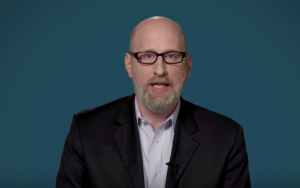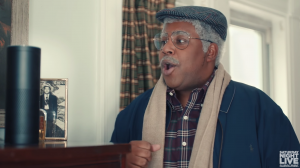
NRO’s Colette Moran had an interesting and — no doubt — controversial letter from a pediatrician, explaining why he doesn’t accept children of parents who refuse vaccines:
When parents of prospective patients come to visit my office to meet our providers and to decide if we’re the right practice for them, there are lots of things I make sure they know. I talk about the hospitals we’re affiliated with. I tell them when we’re open and how after-hours calls are handled. On my end, I like to know a bit about the child’s medical history, or if there are special concerns that expecting parents might have.
And then this: I always ask if the children are vaccinated, or if the parents intend to vaccinate once the child is born. If the answer is no, I politely and respectfully tell them we won’t be the right fit. We don’t accept patients whose parents won’t vaccinate them.
It’s not simply that we think these beliefs are wrong. Declining vaccines is, at best, misguided. But of course those inclined to refuse them don’t agree with me, and I’m not going to try to change their minds. I’ve had too many of that kind of conversation over the years to hold out hope that anything I can say will sway them.
Which is precisely the problem.
There are few questions I can think of that have been asked and answered more thoroughly than the one about the safety and effectiveness of vaccines.
The measles-mumps-rubella vaccine does not cause autism.
The HPV vaccine is safe.
There is no threat to public health from thimerosal.
I can say all of this without hesitation because these concerns have been investigated and found to be groundless. But no amount of data seems sufficient to convince people who hold contrary beliefs.
He goes on to explain:
The physician-patient relationship, like so many other human relationships, requires an element of trust. I certainly neither want nor expect a return to the paternalistic “doctor knows best” mindset of bygone years, but I do need to know that patient’s parents respect my training and expertise. Refusing an intervention I desperately want all children to receive makes that respect untenably dubious.
There will be times when parents and I may not see eye to eye, but not where I’m using the best evidence at hand to support my recommendations. Maybe they’ll want a test I think is useless, or want to use a supplement shown to be harmful. Perhaps it will be a referral for an intervention shown to have no benefit. If I can’t hope to persuade them by making reference to the available research, what can I expect to be for them other than a rubber stamp for their ideas? If medical science can’t answer the meritless qualms they have about vaccines, when can I use it at all?
I have no doubt that these parents love their children immensely and are making what they believe to be the best decisions for them. I don’t dispute that. But any potential partnership we might create in caring for them together would rely on their belief that I have something other than a signature on an order form or prescription pad to offer.
They must believe I have a perspective worth understanding.
I often wonder why a parent who believes vaccines are harmful would want to bring their children to a medical doctor at all. After all, for immunizations to be as malign as their detractors claim, my colleagues and I would have to be staggeringly incompetent, negligent or malicious to keep administering them.
Read more on the Patheos Faith and Family Channel and follow Nancy on Twitter and Facebook!









